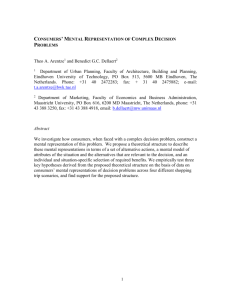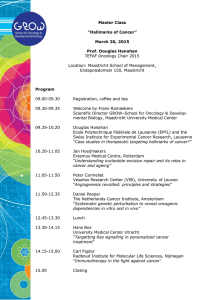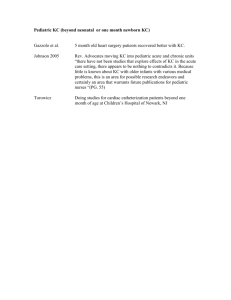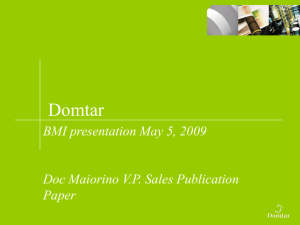Generating trust in Preventive Pediatric Primary Care within the
advertisement
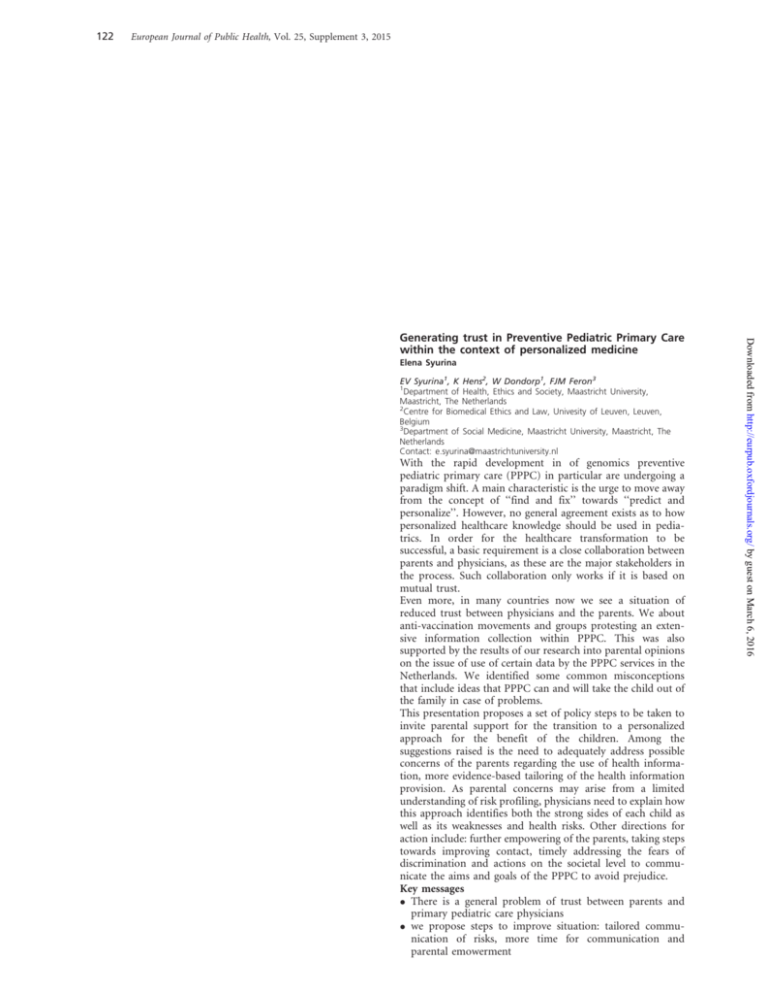
122 European Journal of Public Health, Vol. 25, Supplement 3, 2015 Elena Syurina EV Syurina1, K Hens2, W Dondorp1, FJM Feron3 1 Department of Health, Ethics and Society, Maastricht University, Maastricht, The Netherlands 2 Centre for Biomedical Ethics and Law, Univesity of Leuven, Leuven, Belgium 3 Department of Social Medicine, Maastricht University, Maastricht, The Netherlands Contact: e.syurina@maastrichtuniversity.nl With the rapid development in of genomics preventive pediatric primary care (PPPC) in particular are undergoing a paradigm shift. A main characteristic is the urge to move away from the concept of ‘‘find and fix’’ towards ‘‘predict and personalize’’. However, no general agreement exists as to how personalized healthcare knowledge should be used in pediatrics. In order for the healthcare transformation to be successful, a basic requirement is a close collaboration between parents and physicians, as these are the major stakeholders in the process. Such collaboration only works if it is based on mutual trust. Even more, in many countries now we see a situation of reduced trust between physicians and the parents. We about anti-vaccination movements and groups protesting an extensive information collection within PPPC. This was also supported by the results of our research into parental opinions on the issue of use of certain data by the PPPC services in the Netherlands. We identified some common misconceptions that include ideas that PPPC can and will take the child out of the family in case of problems. This presentation proposes a set of policy steps to be taken to invite parental support for the transition to a personalized approach for the benefit of the children. Among the suggestions raised is the need to adequately address possible concerns of the parents regarding the use of health information, more evidence-based tailoring of the health information provision. As parental concerns may arise from a limited understanding of risk profiling, physicians need to explain how this approach identifies both the strong sides of each child as well as its weaknesses and health risks. Other directions for action include: further empowering of the parents, taking steps towards improving contact, timely addressing the fears of discrimination and actions on the societal level to communicate the aims and goals of the PPPC to avoid prejudice. Key messages There is a general problem of trust between parents and primary pediatric care physicians we propose steps to improve situation: tailored communication of risks, more time for communication and parental emowerment Downloaded from http://eurpub.oxfordjournals.org/ by guest on March 6, 2016 Generating trust in Preventive Pediatric Primary Care within the context of personalized medicine
